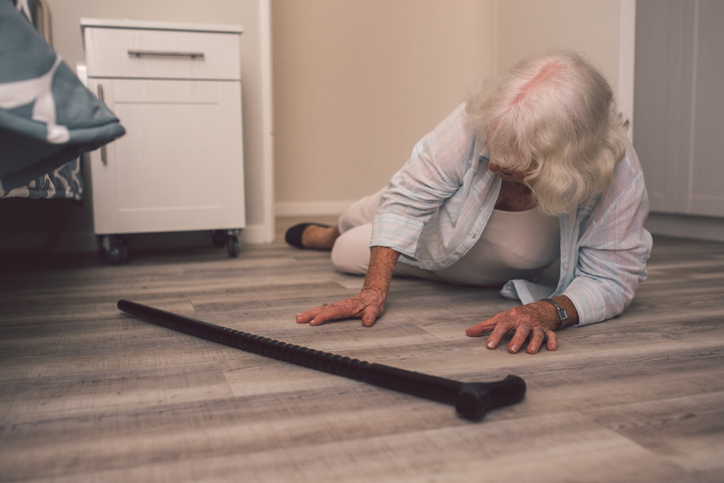Can You Sue a Nursing Home for a Fall?

In the 1990s, a popular advertising campaign aired on televisions throughout the United States. It depicted an elderly woman shouting, “Help! I’ve fallen and I can’t get up!” This campaign was memorable for all the wrong reasons, and worse, the response it received seemed to make light of the very serious issue of elderly falls.
It is common for elderly people to suffer falls. They may be unsteady on their feet, have medical conditions or take medications that affect balance, or simply suffer from muscle weakness making it difficult to support themselves while walking or transferring from bed to a chair. When our loved ones reside in a nursing home, we expect that they will be kept safe. Nursing Homes have a duty to ensure that residents receive adequate supervision and assistive devices to prevent accidents. They also have a duty to ensure that the resident environment remains free of accident hazards. One of the primary objectives of nursing home professionals is to prevent residents from falling and becoming injured. Accurate fall risk assessments are required to be conducted by nursing homes for each resident and appropriate fall prevention interventions are required to be implemented based upon each resident’s needs.
According to the Centers for Disease Control and Prevention (CDC):
- 25 percent of elderly Americans fall each year
- 1 of every 5 falls breaks a bone or causes a head injury
- Falls are the leading cause of trauma-based hospitalization for those over 65 years old
- Nearly all (more that 95 percent) of hip fractures are caused by falls
- Falls cause most traumatic brain injuries (TBI)
Falls can be caused by or contributed to by many factors such as:
- Muscle weakness or atrophy
- Unsteady gait or balance problems
- Dizziness
- Inability to understand or follow directions
- Impaired memory, judgment or safety awareness
- Confusion
- Medication use
- Tranquilizers
- Painkillers
- Sedatives
- Antidepressants
- Sedative/hypnotic medication
- Psychotropic medication
- Diuretic medication
- Vision impairment
- Improper footwear
- Failure of nursing home personnel to respond to call bells in a timely manner
- Failure of nursing home personnel to provide adequate monitoring, supervision and assistance
- Failure of nursing home personnel to accurately assess a resident’s risk for falls
- Failure of nursing home personnel to implement appropriate fall risk interventions
- Failure of nursing home personnel to document and communicate fall risk interventions for residents
- Accident hazards in the resident environment
- Broken or uneven floor tiles or steps
- Unstable railings
- Slippery or unclean floors
- Inadequate lighting
- Clutter
The cost of a fall
Falls are terrifying and traumatic, and, in an instant, can change the course of your loved one’s life. In many cases, a fall can be fatal for the elderly.
The average cost of hospital care for a fall is $30,000, and that cost increases with age. That does not include ongoing care and the potential cost of having to change living arrangements, nursing homes, or the type of care administered.
Some falls cannot be prevented, but many — especially those that occur in a controlled environment such as a nursing home — are avoidable and should never happen. If your loved one has fallen in a nursing home, they may be entitled to compensation for their pain and suffering and for the cost of past and future medical expenses incurred in connection with the accident.
For legal help after you or your loved one has suffered a fall in a nursing facility, call Rich & Rich, P.C. today at 212-406-0440 to schedule a free consultation, or contact the firm online.

